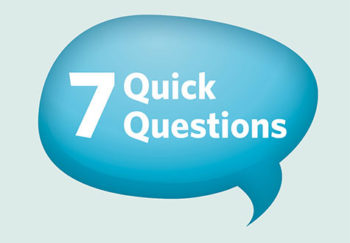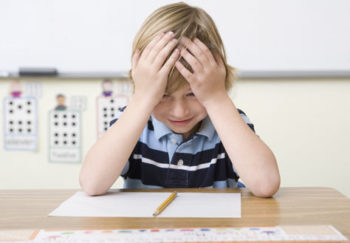
Attention deficit hyperactivity disorder (ADHD) is a brain disorder that affects approximately 11 percent of children age four to 17 in the United States. It’s also a highly genetic disorder.
“Parents who come in suspecting their child has ADHD may themselves have had undiagnosed ADHD his or her whole life,” says UVA pediatrician Kenneth W. Norwood, Jr., MD. According to Dr. Norwood, for every child that ADHD, there’s a 30 to 40 percent chance that at least one parent also has the disorder.
And in many cases, the parent’s ADHD has gone undiagnosed.
ADHD Signs in Children and Adolescents
Behavioral problems or an inability to concentrate or follow directions often make parents seek out an evaluation to see if their child’s hyperactivity or inattention is out of the ordinary. There are three distinct ages when this happens, according to Norwood. The first two refer mainly to boys:
- In preschool or daycare, when behaviors like aggression or biting become an issue
- In early elementary school, when what seemed like being high energy or “all boy” starts to have academic consequences
Girls are diagnosed at a later age — typically middle school — when spaciness or an inability to concentrate starts to impact academics.
If your child has an ADHD diagnosis, talk to his or her teacher and school administrators. Informal accommodations, like being able to stand at a desk, could be an option. For children with ADHD and learning disabilities, more formal accommodations, such as an Individual Education Plan or (IEP) or a 504 Plan might help them succeed in the classroom. These are very individual, and there’s no one size fits all option.
Do You Think That Your Child Has ADHD?
Make an appointment with a pediatrician.
Growing Up With ADHD
People think of the “hyperactive” part of ADHD and associate it with kids, but its other symptoms, like inattentiveness and a lack of impulse control, persist into adulthood if not treated. Few children outgrow it. “Eighty percent of kids who have ADHD as children have it as adults,” Norwood explains.
Adults with undiagnosed ADHD are at risk for:
- A higher prevalence of car accidents, especially teenagers
- Problems with relationships
- Trouble keeping jobs
- Self-medication
Managing ADHD requires consistent structure and sometimes behavioral therapy and/or medication over a lifetime. But with the correct diagnosis and support, the child with ADHD can learn to harness it.

